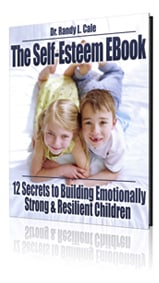Many parents are discovering, with months of quarantine, that their influence as a parent is eroding rather than improving. This is due to a failing strategy. The more challenging the child, the earlier the weaknesses in parenting begin to unfold.
However, even with easy kids, a flawed parenting approach falls apart during those challenging teenage years. Teenagers refuse to help out around the house, do minimal amounts of homework, and often show disrespect to mom and dad. And yet, too often, this is accepted as the new normal.
It’s not normal. It is predictable, but not normal.
Why would we accept setting such low standards for our youth?
“But, Dr. Cale, it’s not worth the battle.”
This comment is understandable, as many of you may have expressed this or thought it. And truthfully, it’s not worth the battle!
As a result, when it is no longer worth the battle, we give up. We abandon the expectation to have children do more and be more respectful. We decide in unison, ‘it’s just the teenage years.’
This is not true. The battles are due to a flawed strategy.
Why Using Force Always Ends Up in War at Home.
As a parent, force is commonly called upon early on. We use it by commanding and demanding that our children listen and respond. It sounds like this:
- Get your homework out now, and get it done.
- Stop fighting with your brother.
- Don’t talk to me that way!
- Get your shoes on now. We have to go.
- I need your help. Go get the groceries out of the car.
Such an approach often results in battles that begin early in life, and worsen over time. When young, we rule over children and invoke fear when they resist. We raise our voice, point in threatening ways, and even physically force them to follow our commands.
With this strategy, every day becomes a battle and argument over the chores or tasks to be done. When children or teens resist our commands (which eventually most do), we lean into the battle even stronger and threaten more loudly and harshly.
We try to force them to listen and use this to an exhausting extent. We get frustrated, thinking that they should actually listen to us when we give them commands. In essence, we try to force our will upon them with our words and threats.
We find ourselves using more and more words in an attempt to get real action from our children. There are incessant lectures, discussions, and efforts to offer insights. Teenagers correct us, explain how wrong we are, and educate us on how the world really works.
Our children turn our words back upon us. They command back to us, as we have commanded them. They scream NO just as loudly as we scream YES. They resist the harder we push.
This is when war emerges at home, with battle upon daily battle. It gets ugly. Very ugly.
And little gets done. Important relationships suffer. It’s easy to understand the decision: It’s not worth it when we have walked this path of using force.
Turn to Power and Turn Away from Force
When we can see that using force is a losing strategy, this is where we often give up. We do not realize that there is another path; the power path!
Where is this power path hidden? It’s hidden in the delusion that words are the foundation for a parenting strategy to get better action from your children. If we abandon this delusion, we are left wordless but not helpless. We just stop talking and stop trying to force compliance with our commands. That’s all.
And now, if we can’t talk, what can we do? What can you do if you stop trying to force behavior?
Power Comes from Working with The Laws of Reality
Rule #1: Reality loves action. In the real world, action rules. We want employees who actually do something, not talk about doing something. You want children who get their homework done, not lie about having no homework. You want a teen who actually mows the lawn instead of making excuses for why it isn’t mowed.
To get with reality, have an action plan for your family. Not a word plan. To get better behavior, require better behavior with an action plan.
Rule #2: Reality uses leverage to get people motivated. No one gets paid before they show up for work. Reality says that when you do your work, then you get the rewards. This is leverage installed in the very infrastructure of our society.
Here’s the problem: Children now expect to get all the rewards, and provide no effort. They expect the $900 phone, and not work for it. They expect rides with no notice and no hassles for failing grades. They expect the freedom to have infinite screen time, with no consequences. This teaches them about a false reality and sets them up for failure.
Instead, require work to be done before your kids enjoy all those goodies you provide. Be more reality-based and discover your power when you stop talking and require action.
Rule #3: Get better action by controlling what your kids care about! This is the magic piece of leverage. Stop trying to force better behavior by talking about it.
Instead, control what your kids care about, and use this as leverage to get better behavior. Be patient, as eventually, they will come to see things your way, if you control what they care about rather than trying to force control upon them.
Within a week or two, this shift will transform your children. Why? Because you stop talking and start working with what your children/teenagers care about. This will get their attention, and you step into your power. Let them resist for a while, saying they don’t care.
Trust me: They do care if you have shut down their world. Hold out until children demonstrate that they have taken action. Your motto is: Do your work, then you play. It’s simple.
Once they have taken solid action, then release them to their goodies today. Each day, repeat this process. It’s the beginning of a magical change about to come into their lives as you discover your true power, and you abandon using force in your parenting.















